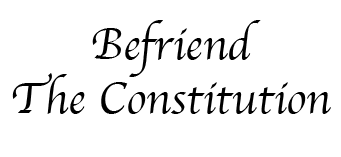Fundamental religious rights include: the right to believe or disbelieve; the right to worship, either alone or with others; the right to assemble for religious purposes; the right to own or occupy property for the purpose of worship; the right to perform religious ceremonies; the right to possess and distribute religious media; and the right to establish rules for fellowship in a religious society.
Governments are established for the benefit of their citizens, who should be equally protected and equally obligated under the law, be they believers or nonbelievers. Our Creator and Judge holds government leaders accountable for their acts in relation to their citizens, both in making and administering laws for the good and the safety of the people.
Such civil and criminal statutes of a nation apply uniformly to all within its borders. Statutes establish standards that protect human life, morality, decency and dignity. Those laws not only regulate secular affairs, but they also secure the free exercise of conscience and the protection of human rights.

